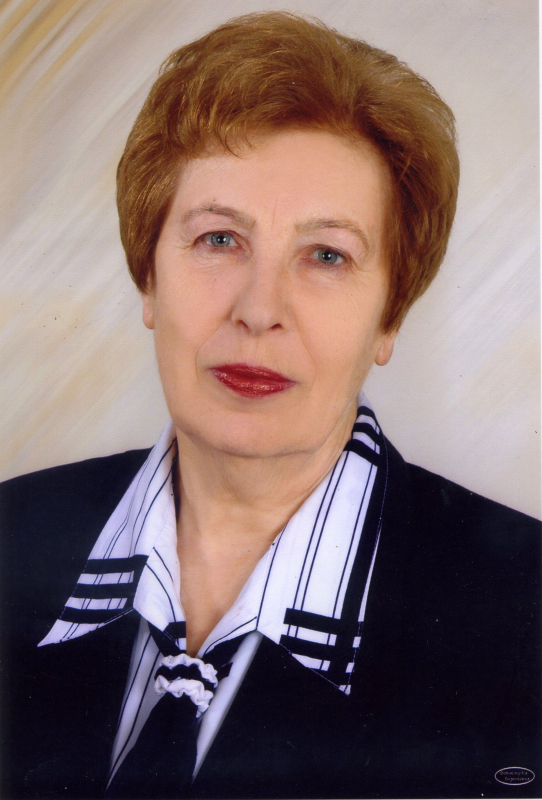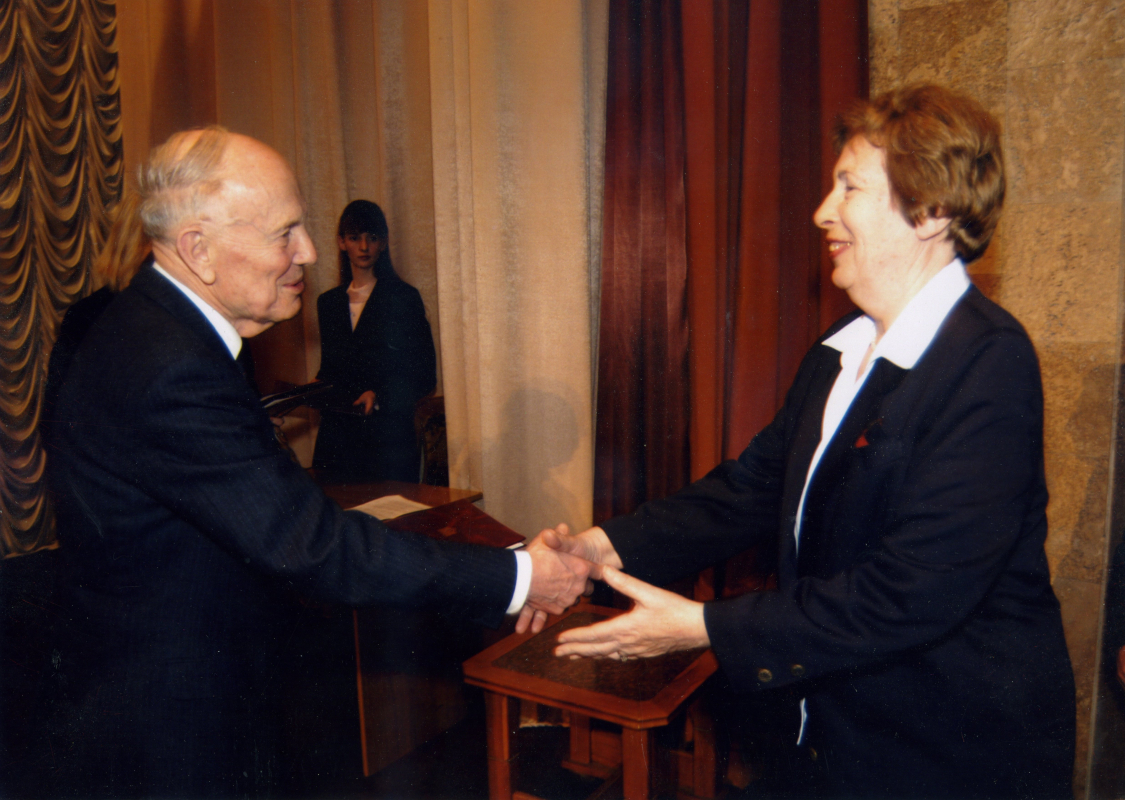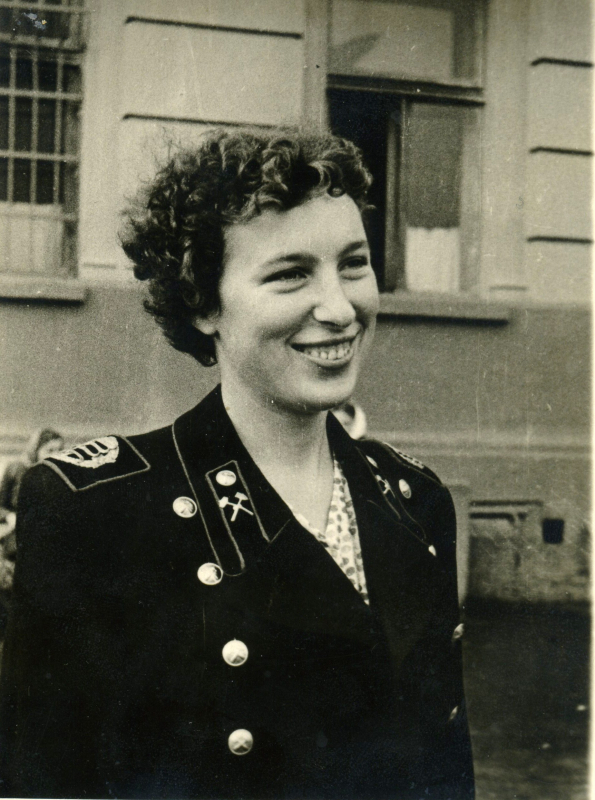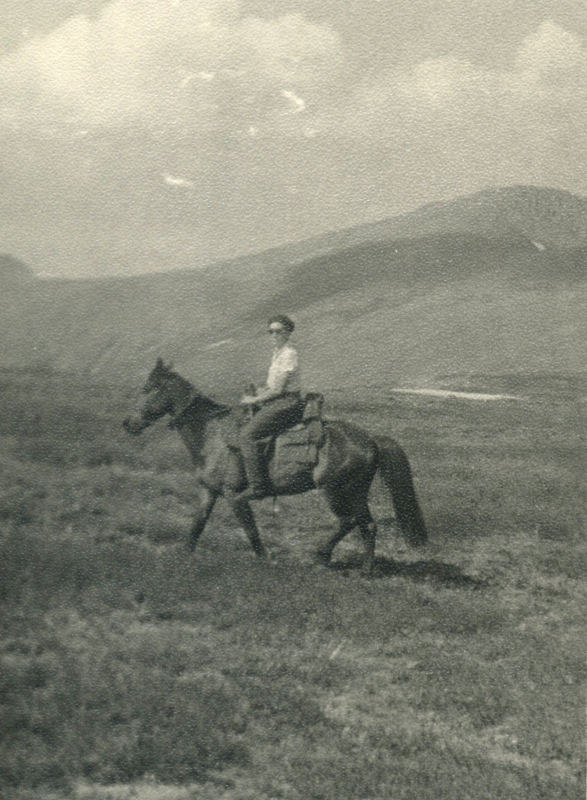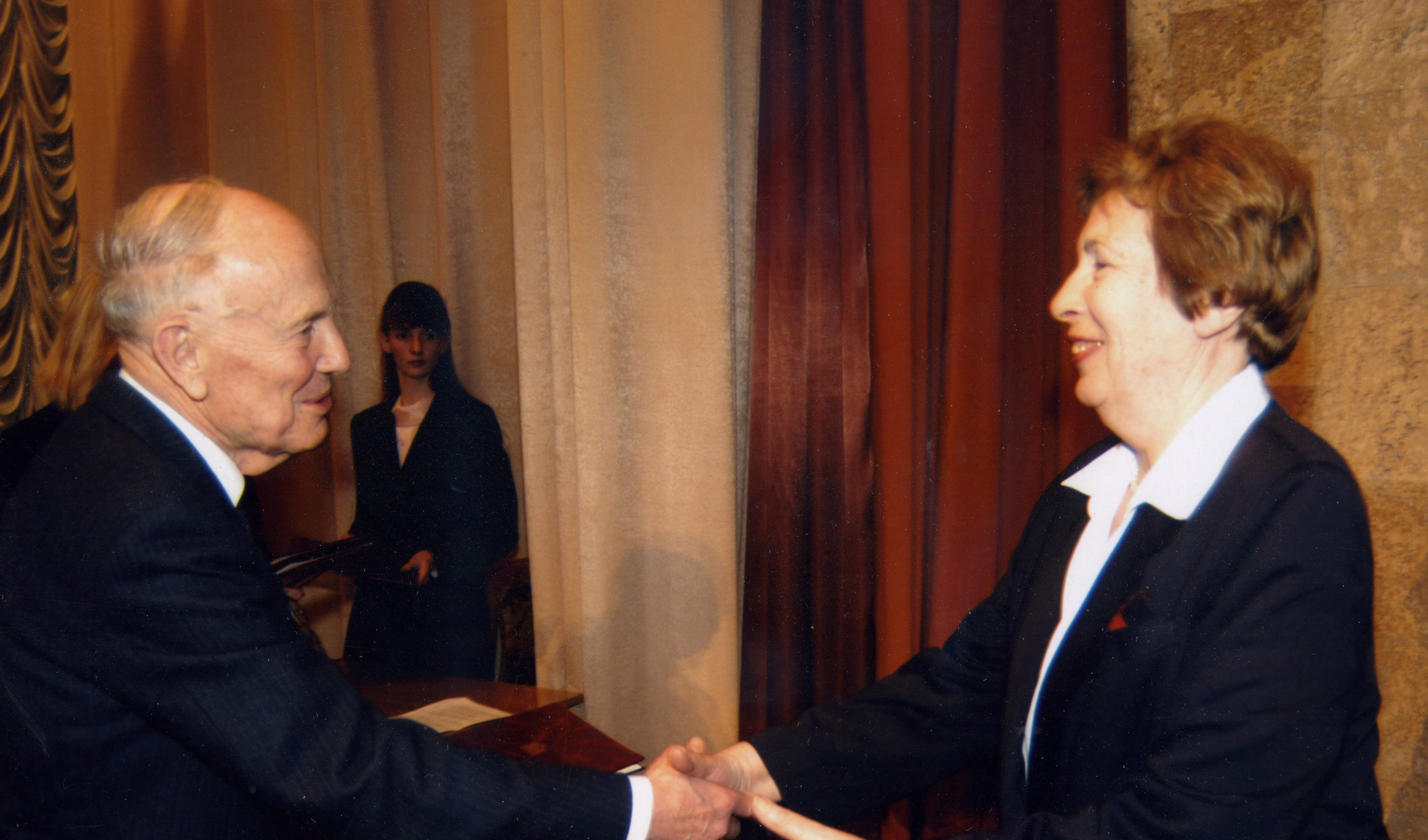Lviv Polytechnic has changed its structure several times during its 200-year history. New faculties appeared, then some of them disappeared or were joined, later they became separate again… Only veterans can remember that once there were Geological Survey Faculty, Oil Faculty and Mining Industry Faculty, which are also part of Lviv Polytechnic history that should be remembered.
Valentyna Heorhiyivna Kuznyetsova is more than eighty years old. However, this energetic woman has decided to join Lviv Polytechnic Alumni Association. Graduates of different years and different faculties can create their chapter of 200-year history of our University. Let’s listen to it.
– I come from Kyiv. I was born in 1933, the most difficult year for Ukraine. The notorious Holodomor. The famine was not so terrible in the capital as it was in the country. However, a lot of people were short of food. My mother told me that city railway stations were crowded with people that came to Kyiv to escape from famine. I have had a very low hemoglobin level since childhood because my mother did not have adequate nutrition.
– What were your parents?
– My father graduated from Kyiv Polytechnic Institute in 1939, when he was already 35. He was an engineer electrician. My mother studied in Taras Shevchenko Kyiv University. She was a microbiologist.
– How did you get to Lviv?
– In 1940, after Western Ukraine was annexed to the Soviet Union, my father was transferred to Lviv to work as an engineer. On June 25, 1941, (Germans entered Lviv on June 30), we were evacuated to Kyiv, and later to Magnitogorsk, where my mother’s brother lived. There I went to the primary school. In 1946, we returned to Lviv, after my father was demobilized from the Red Army. He served in the railway troops. Here I studied at school № 13, where, by the way, Larysa Shepitko, a future famous film director, who shot a legendary film based on the novel by Vasyl Bykov «Ascending», studied as well. The school is no longer there, but there is a plaque in honor of this outstanding figure. I left school with a silver medal. I loved Physics.
– Why did you choose Geological Survey Faculty of Lviv Polytechnic?
– There were several reasons. However, I remember that my mother’s friend, a geologist, advised my Mum, «Your daughter is rather unhealthy. Let her become a geologist. This way she will always be in the open air…» But I joined geology because of the influence of geology students. I was considering Electrical Technology Faculty (there was no Radio Technology Faculty at that time). I loved working with physics devices. I met two young men, geology students, at the Admissions Office. They were wearing their uniform with shoulder straps. Girls, who studied geology, also had similar uniform. We started talking. They asked me, «Do you like working with devices? It is even more interesting in our geophysics. We have devices which study the Earth, look for mineral resources». After that I came home and told my parents about this. And they remembered that it would be good form to be in the open air. That is how I became a geologist.
– Was there any entrance competition?
– There was very big competition. It was not only because the scholarships were the biggest at Geological Survey, Oil and Mining Industry Faculties. It was also prestigious and patriotic.
– What was your specialization?
– Geophysical methods of surveying mineral resources. That was also the name of the department. We were trained to search for oil. Now we can say that it was experts from Ukraine that contributed the most into the development of oil and gas industry of the former Soviet Union. Now Russian Federation is still making use of these achievements…
– What kind of student were you?
– I was a good student. I had an increased scholarship. Regular scholarship amounted to 395 rubles, and the increased one was 500. A lot of students lived only on their scholarship. In general, we were very modest in our needs. When I was studying in high school, I had only one woolen dress besides my school uniform. Boys wore so called bobochky. There were only four girls in my group. Two of them were yesterday’s schoolgirls, and the other two were older women, one of them had survived the war.
– In which building did you study?
– Younger students studied in the main building. And the department was located in the building of the Oil Faculty, the one where the Institute of Radio Technology is located now. There was even a derrick near that building.
– Whose lectures were interesting for you?
– I will start with lecturers who taught general subjects. Rvachov was Head of our graduate department, later Andriyevskyy appeared. The best lecturers taught geophysicists. Zahorskyy, Head of the Department of Mathematics, taught us mathematical analysis. Sunchelyeyev was before him. Before we entered Polytechnic, Academician Selskyy created the Department of Geophysics. He passed away shortly. The Department was headed by Vasanchuk. Yuriy Vasylyovych Tymoshyn, a world-famous scientist, taught us geophysics.
Ladyzhynskyy, was a very interesting and original lecturer, and an incredibly intelligent person. He said he could deliver lectures in Ukrainian, Russian and Polish. We thought he was most fluent in Polish. He always looked smart – with a handkerchief, a bowtie. A lot of students remembered his famous phrase about an earthquake, «Cats were meowing, the earth was shaking and shaking, it was terrible…» It was impossible to make notes at his lectures because all students were sitting there with their mouths open and listening with adoration.
– Did you ever play truant?
– Not so often. We missed lectures which, in our opinion, were not interesting. When we became older, boys started asking us to cafes. They even treated us to port.
– What was geophysics internship like at that time?
– First internship programs aimed at getting acquainted with various places, which were interesting from a geological point of view. When we were second-year students, we were subdivided into teams of 7 people. This time it was real internship. My friend Tonya and I had to go to Berehovo, in the Transcarpathians. I don’t know how I, a Mummy’s girl, adapted to this profession. Later on, one experienced geologist took us both with him on the route. He was a very peculiar person. He created such challenges for us! He was walking constantly forward through mountains and ravines. We had to go through the depth of the forest with blackberry bushes. Our hands were covered with blood, our trousers were torn. Finally he stopped to take a break. Our mentor said he would not wake us. However, we did not sleep. We were afraid that he would leave us alone, and we would not be able to find our way. In two weeks, when we were shown and told everything, that geologist explained his behavior towards us, «I wanted those two girls to burst into tears and understand what kind of profession the profession of a geologist is…» He checked our surviving skills. It turned out that geology was not a bed of roses. It is not a profession, it a way of living.
– What was your first job?
– I was transferred to the Siberian Geophysical Trust in Krasnoyarsk. A lot of people from our institute went there. We were trained to search for oil, and in our last year we were told to develop the ore base of the country. I was married at that time. My husband studied architecture in Lviv Polytechnic. Siberia was a place for realizing their romantic dreams for many people. The film «A tale about Siberian land» was very popular at that time. When the Trust administration found out that my husband was an architect, and I have a diploma with appreciation, they suggested I should stay in Krasnoyarsk. However, I decided to work in Novokusnyetsk because my husband’s relatives lived there. There was a job for me in Western Siberian Geological Department. We were doing a geomagnetic survey, searching for iron ore, mercury, coal and other mineral resources. I was working for some time in an aeromagnetic party. It was very interesting to photograph huge territories.
– What about your academic career?
– I did my PhD. I defended my thesis in Moscow, in Academician Schmidt Institute of the Physics of the Earth. In 1966, alumni of our faculty celebrated 10th anniversary of our graduation. My bosses treated me well and even sent me on a business trip to Lviv on this occasion. My parents lived here. They insisted that I should move together with my family to Lviv. There was Lviv Branch of the Institute of Geophysics of the Academy of Sciences of Ukraine in the city. I was invited to work there. I had to make a fresh start and start working in magnetology and seismology. As you know, our neighboring Transcarpathian region is seismologically active. Slight core earthquakes occur there on a regular basis. I took part in the International Congress of Experts in Forecasting Earthquakes in Japan. I wasn’t hoping much but I sent my paper and received an invitation. My scientific work and two of my colleagues was given Subotin State Award. The award was presented to us by Academician Paton himself.
– Do you know anything about the fate of your fellow students?
– Roman Kutas became very famous. He is a correspondent member of the National Academy of Sciences of Ukraine. Khrystyna Zayats, candidate of geological and mineralogical sciences, lives in Lviv. She has always been very active and energetic. Mykhaylo Stestyk from our group stayed in Lviv. We used to meet on the Geologist’s Day.
– What about your children? Do you have grandchildren?
– My daughter and my son were born in Novokuznyetsk. Both of them graduated from Lviv Polytechnic, which I am very proud of. My son lives in Dnipro, and my daughter lives in Lviv. I have two grandchildren and three great-grandchildren.
– Do you know that there will be a huge congress of Lviv Polytechnic alumni on June 3, and this day will become traditional? Are you going to come?
– I will do my best if everything is ok with my health. I would like to go back to my student years and to find out what is going on in my native Lviv Polytechnic, which is becoming more and more European.
